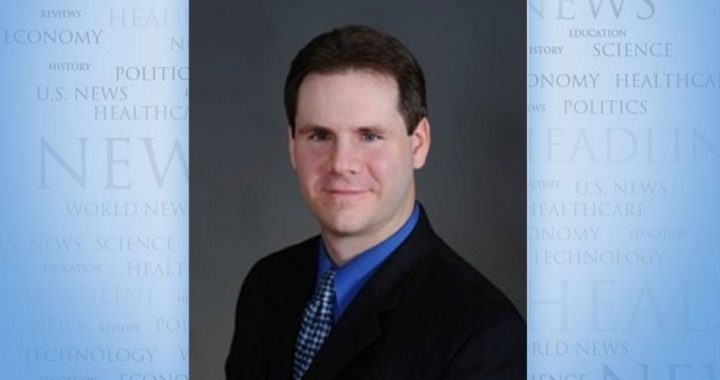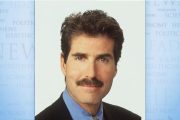
There’s an old patriotic joke about how the Soviet media spun a two-auto race in which an American car bested a Russian one. Went the reportage: “Russian car finishes second in race.
American car comes in next to last.”
But this joke has nothing on the modern Western media’s practices, which were on full display in the coverage of a recent Vatican speech on finances given by Pope Francis to visiting new ambassadors. For instance, The Telegraph ran the headline, “Pope Francis urges global leaders to end ‘tyranny’ of money.” Author Nick Squires then went on to “explain,” “He [the pope] said free-market capitalism had created a ‘tyranny’…. [That is,][u]nchecked capitalism had created ‘a new, invisible, and at times virtual, tyranny’, said the former Cardinal Jorge Bergoglio.”
The problem?
The pope never used the term “free-market capitalism.”
For that matter, he never mentioned capitalism or the “free market” at all.
Nor did his speech include the phrase the “tyranny of money.”
In fairness, Squires didn’t present the absent terms and phrases as quotations, but as elements of his own interpretation of what the pope meant. But his journalistic divination clearly is blind to the divine, as he thoroughly mischaracterized the theme of Francis’s speech.
To wit: Financiers, politicians, and economists should cultivate a God-centered ethics when pursuing their endeavors.
In fact, the words “ethics” and “ethical” were mentioned eight times in the pope’s 1000-word speech (which took mere minutes to deliver), and “God” appeared four times. But while Squires used terms in his article that Francis never uttered, he mentioned “ethical” only once, in passing, and “God” not at all.
This is deceptive — if not deceitful. Even if a reader notes your cut-and-paste efforts — which are a legitimate part of good summarization — he will likely assume that you’re seeking to distill, not distort, the essence of the story. And in Squires’ case the reader can’t easily compare notes, either, since the author departed from common practice and did not provide a link to what the pope actually said. Surprise, surprise.
Of course, to focus on the speech’s actual theme — ethics — would have contradicted the media narrative that the pope was calling for government, and not godly, control. For ethics lies outside of law. Sure, we want our politicians to be ethical in their personal lives and when crafting legislation, but we also want our auto mechanics, teachers, parents, doctors, lawyers, and clergymen to be ethical. And you can have ethics without government — but you cannot have good government without ethics.
Moreover, the pope correctly tied ethics in with God, writing:
Indebtedness and credit distance countries from their real economy and citizens from their real buying power. Added to this, as if it were needed, is widespread corruption and selfish fiscal evasion which have taken on worldwide dimensions. The will to power and of possession has become limitless.
Concealed behind this attitude is a rejection of ethics, a rejection of God.
And since baby-in-philosophy journalists have long insisted that you can be good without God, they’re loath to tie ethics in with Him.
Also note that in talking about how indebtedness is distancing “countries from their real economy and citizens from their real buying power,” the pope is clearly criticizing the budget-busting spending of Western nanny-state governments. But the media also found this unworthy of mention.
Having said this, a couple of Francis’s lines did give the leftist media grist for the mill, such as when he said, “While the income of a minority is increasing exponentially, that of the majority is crumbling. This imbalance results from ideologies which uphold the absolute autonomy of markets and financial speculation, and thus deny the right of control to States.” Of course, while there are ideologies espousing the absolute autonomy of markets, they haven’t had much influence in an over-regulated West that increasingly sucks the life out of the private sector. So, no, Pope Francis wasn’t echoing Milton Friedman — nor will I hold my breath waiting for a South American Jesuit to do so. But unlike what the media would have us believe, he wasn’t channeling Karl Marx, either.
So why would the media think they could get away with such deceptive reportage on the Catholic Church? Mainly because they always have (just consider the shameless distortions of Pope Pius XII’s actions during WWII). Remember that the pope oversees a vast world of 1.2 billion Catholics and isn’t aware of every disgorgement of Western media spin; even if he were, however, popes just don’t address such things (that’s the job of people such as I). Thus, the media know they can say anything they want with relative impunity.
Sometimes, though, it’s not only that the media are trying to fool us but that they long ago fooled themselves. As the saying goes, “When you’re a hammer, everything looks like a nail.” When leftist media types evaluate something, they relate what they feel is relevant. Now, these people wouldn’t put much stock in talk about God; to them that’s just window dressing, something politicians and prelates say that’s as meaningful as hello or goodbye. So Francis’s true focus must have been a call for statism; by “ethics” he must mean edicts, by “solidarity” he surely means the collective. God is not real, you see, so what could the higher power be other than government?
Of course, though, these leftists are also the people who gave us the concept of a living Constitution. So perhaps they believe the pope’s speech is living, too, and changed between its delivery and their publication.



